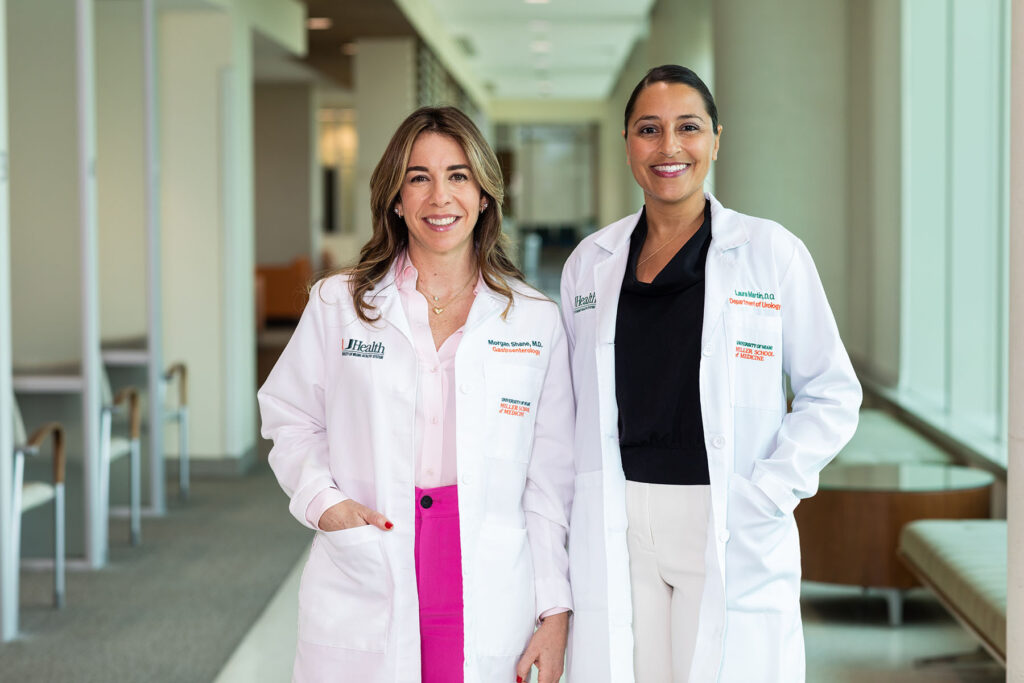How Can Preclampsia Affect Pregnancy?

The imminent arrival of a baby inspires joy, but sometimes that joy is marred by a serious pregnancy condition that can be dangerous for both mom and child. Preeclampsia is gestational hypertension, and it can happen after the second trimester as well as after giving birth. It’s a leading cause of maternal death, maternal intensive care admissions, cesarean section, and infant prematurity, yet its causes elude the healthcare community.
Preeclampsia is more than high blood pressure, however.
A woman with the condition can experience painful swelling in her lower extremities. Her organs, primarily kidneys and liver, can be affected, too. Moreover, “90% of the women who develop preeclampsia will eventually go on to become hypertensive,” says Maria Delgado-Lelievre, M.D., a hypertension and cardiovascular prevention specialist at the University of Miami Health System.
About 5% to 7% of all pregnant women are affected by preeclampsia, but some groups have higher rates than others. For instance, women of color have higher rates than white women. One 2021 study reported that 12.4% of black pregnant women had preeclampsia, compared to 8.2% for Hispanics and 7.1%, for non-Hispanic whites. It’s no coincidence that the maternal mortality rate for black women was 2.6 times the rate for white women.
These alarming statistics contribute to the high maternal death rate in the U.S. — the highest among all developed countries.
While access to healthcare during pregnancy plays a part, Dr. Delgado-Lelievre also notes that studies have shown non-Hispanic blacks retain more sodium, which can lead to salt-sensitive hypertension.
Preeclampsia cases have been ticking steadily upward over the past decades.
This may have as much to do with improved diagnosing as with worsening lifestyle habits. Half of all Americans suffer from hypertension, and, as Dr. Delgado-Lelievre says, “a family history of hypertension is a big red flag.”
Also, first-time pregnant women are getting older, and maternal age is considered a risk factor.
This is why there’s a big push among the healthcare community to raise awareness of the condition among pregnant women. Early intervention is key, and this is likely to happen if the mother-to-be keeps regular visits to her OB/GYN. In the early stages of preeclampsia, “a woman can be asymptomatic,” she adds. “If they have swelling, they may dismiss it as something everyone has during pregnancy.”
With proper gestational care, a woman can be screened for the hidden signs of the condition. Her urine is tested for the buildup of protein, a sign that the kidneys are not working as they should, and a blood test can alert a doctor about high liver enzyme levels.
If these markers point to preeclampsia, or even if she shows elevated blood pressure, the woman should be referred to an obstetrician who specializes in high-risk pregnancies and/or a cardiovascular expert, such as Dr. Delgado-Lelievre.
“By diagnosing it as early as possible, we can control it more effectively,” she adds.
“Prompt and aggressive medical care” is essential because preeclampsia affects the health of both mother and baby.
The condition restricts the growth of the baby in the womb, affects the baby’s vascular function and has been shown to lead to lifelong health issues such as diabetes, congestive heart failure, cerebral palsy and leaning learning disabilities, according to the National Institutes of Health (NIH).
Mild preeclampsia triples the increase of stillbirth.
With severe preeclampsia, that risk jumps sevenfold.
Some preeclampsia patients can also develop a syndrome that leads to low blood platelet counts. Because platelets help blood clot, women run the risk of losing too much blood during childbirth.
Not all women who have high blood pressure during pregnancy will go on to develop preeclampsia. Gestational hypertension is defined as two BP readings of at least 140 over 90 taken four hours apart in a woman who had normal blood pressure before pregnancy, according to the American College of Obstetricians and Gynecologists (ACOG).
Preeclampsia, on the other hand, “is not just one thing. It’s a constellation of symptoms beyond high blood pressure,” Dr. Delgado-Lelievre says.
Physicians are not sure what causes preeclampsia, but the accepted theory is that it is related to hormonal changes, poor blood flow, and the woman’s vascular health.
The good news?
Treatment, including antihypertensive medications, often works.
Dr. Delgado-Lelievre has other suggestions for pregnant women:
- Tell your doctor immediately if you have a family history of hypertension. Thoroughly share your medical history, particularly previous events of high blood pressure or cardiovascular issues.
- Know the risk factors that contribute to preeclampsia. These include chronic hypertension, obesity, carrying multiple children, identifying as black and being over 40.
- Take your blood pressure daily at home starting in your third trimester. A reading of 130/80 should be reported to your doctor.
- Monitor your sodium intake by eating less than 1,500 mg of sodium a day. Watch for hidden salt in processed food.
- Keep an eye on your cardiovascular health after delivering your baby. Women who had preeclampsia during pregnancy are three to four times more likely to experience a heart attack or stroke in the first decade after giving birth, and that risk remains high even after 20 years.
- Finally, if you have had preeclampsia, you will more than likely become hypertensive in the future.

Ana Veciana-Suarez is a regular contributor to the University of Miami Health System. She is a renowned journalist and author, who has worked at The Miami Herald, The Miami News, and The Palm Beach Post.

South Florida women can benefit from a new “one-stop” Comprehensive Comprehensive Women’s Health Alliance provided by the University of Miami Health System, the first such fully coordinated program in the region.
Tags: blood pressure readings, Dr. Maria Delgado-Lelievre, high blood pressure hypertension, risk factors for high blood pressure
